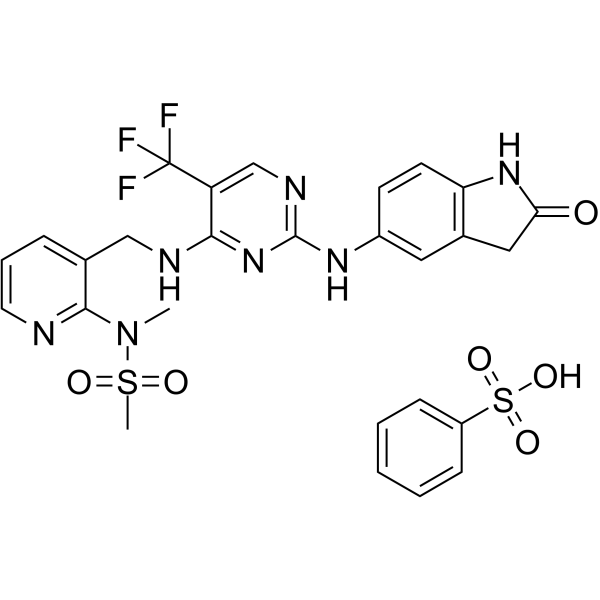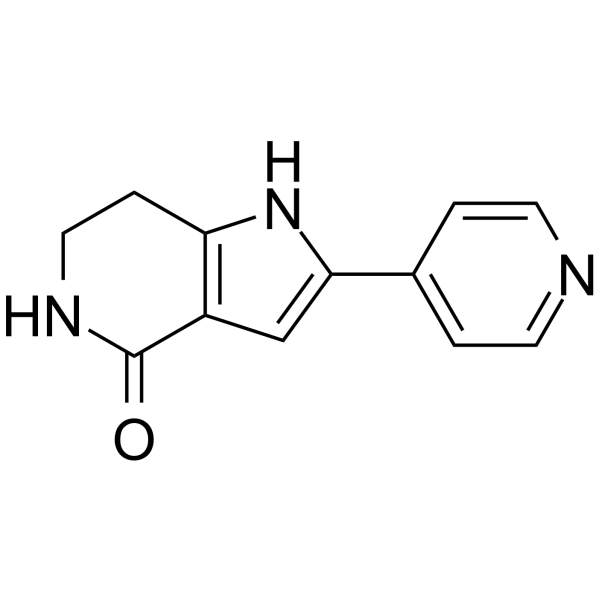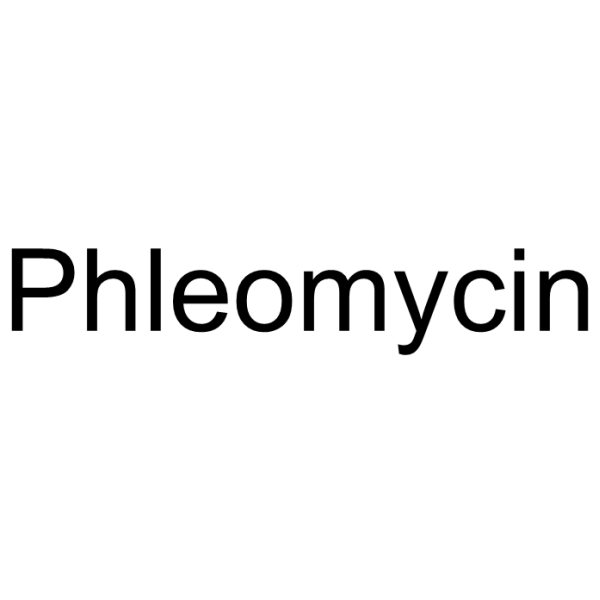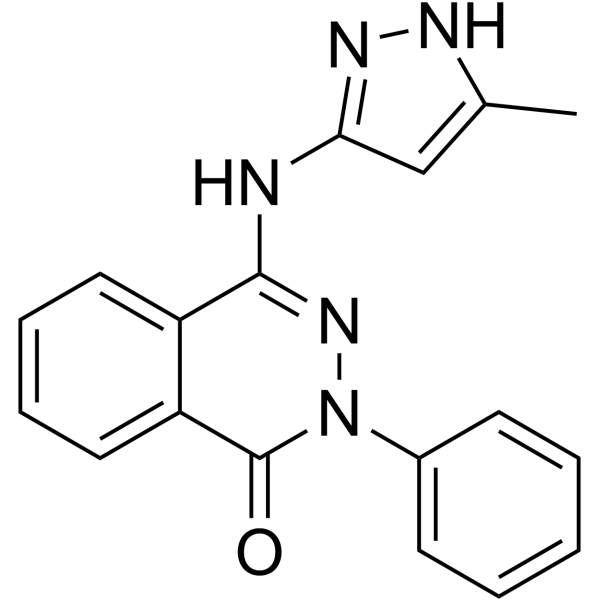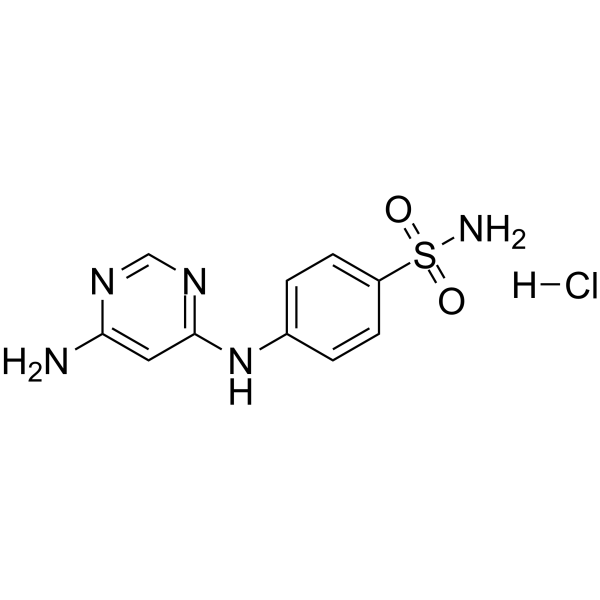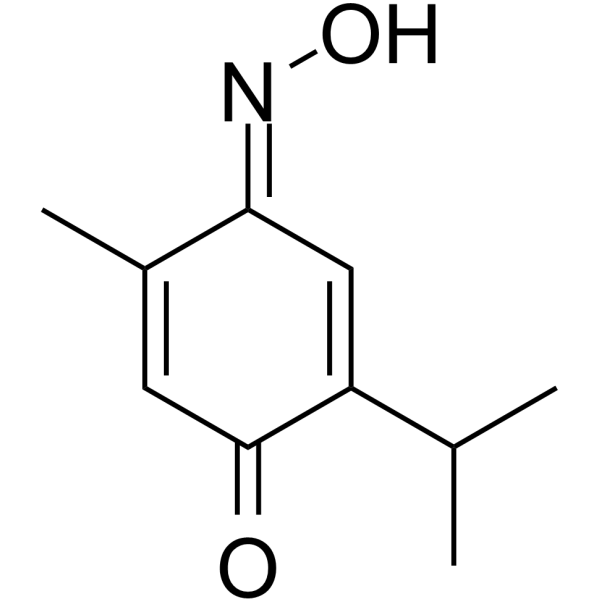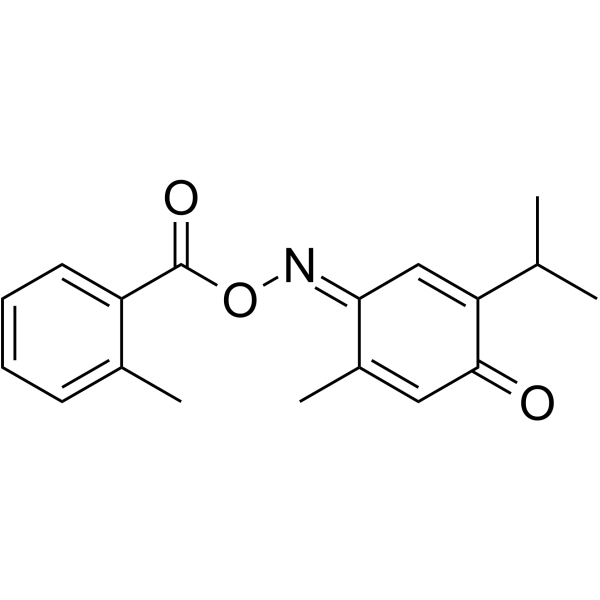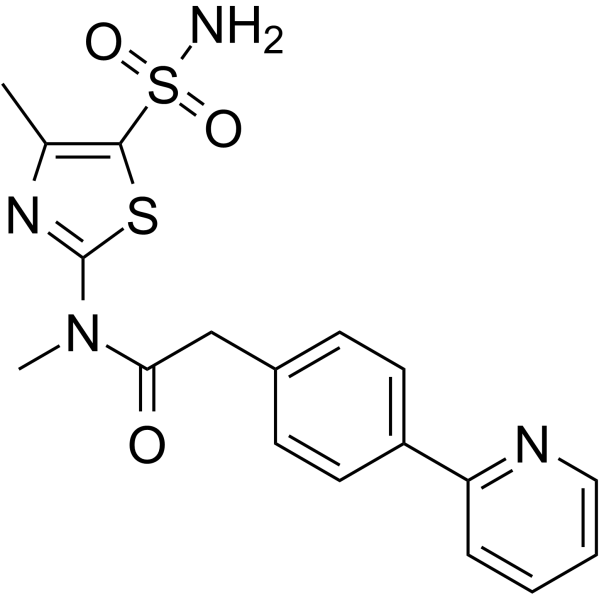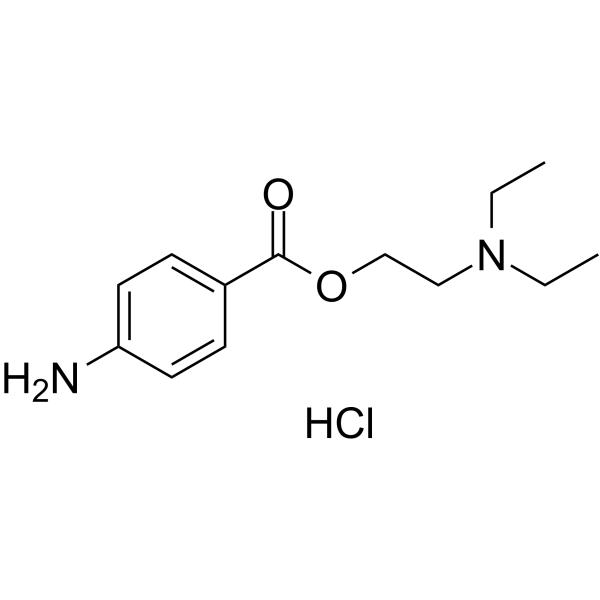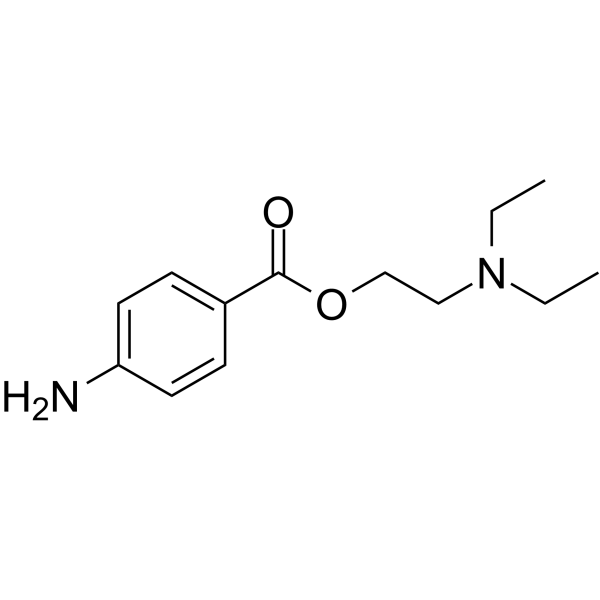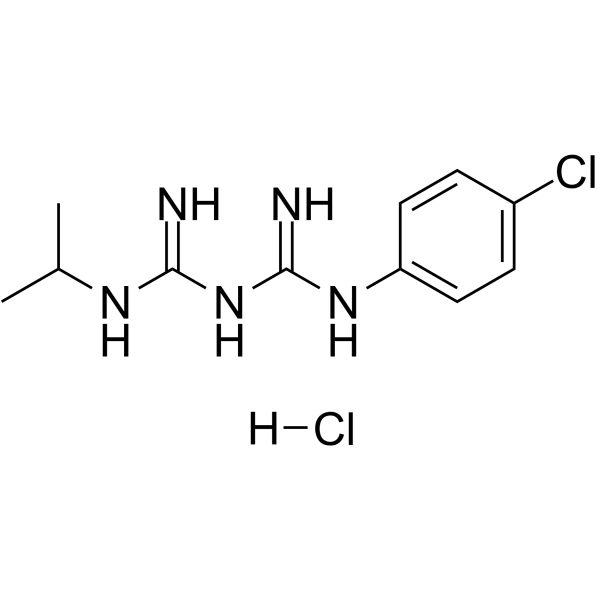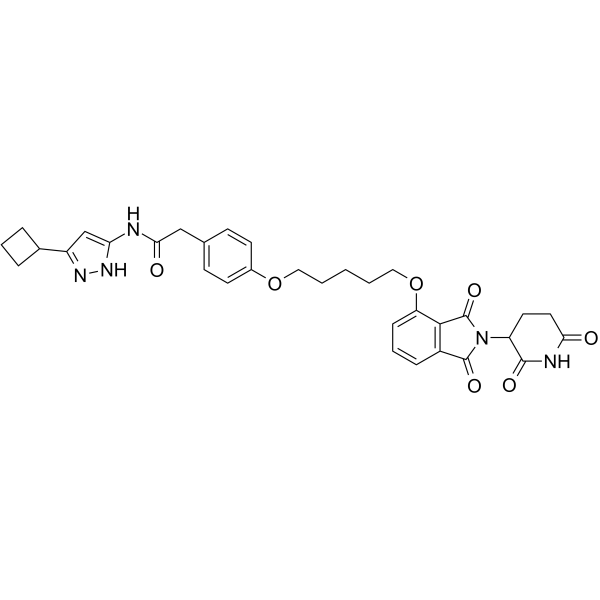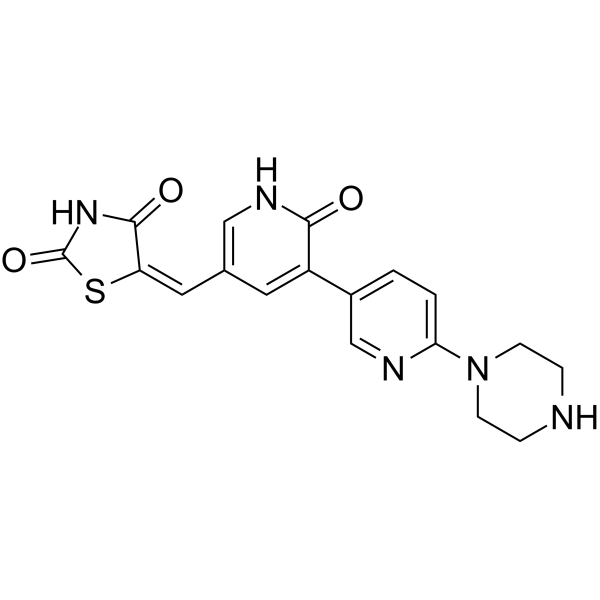|
BP13409
|
Palbociclib
|
|
|
|
|
Palbociclib is an orally available cyclin-dependent kinase (CDK) inhibitor with potential antineoplastic activity. Palbociclib selectively inhibits cyclin-dependent kinase 4 (CDK4) and 6 (CDK6), thereby inhibiting retinoblastoma (Rb) protein phosphorylation early in the G1 phase leading to cell cycle arrest. This suppresses DNA replication and decreases tumor cell proliferation.
|
|
BP13410
|
Pelitrexol
|
|
|
|
|
Pelitrexol (AG 2037) is a glycinamide ribonucleotide formyltransferase (GARFT) inhibitor.
|
|
BP13411
|
Rac1 Inhibitor W56 acetate(1095179-01-3 free base)
|
|
|
|
|
Peptide comprising residues 45-60 of the guanine nucleotide exchange factor (GEF) recognition/activation site of Rac1; selectively inhibits Rac1 interaction with Rac1-specific GEFs TrioN, GEF-H1 and Tiam1.
|
|
BP13412
|
PF-06873600
|
|
|
|
|
PF-06873600 is a selective and orally bioavailable cyclin-dependent kinase (CDK) inhibitor(CDK2, CDK4 and CDK6 with Ki of 0.09 nM, 0.13 nM and 0.16 nM, respectively), has potential antineoplastic activity.
|
|
BP13413
|
PF07104091
|
|
|
|
|
PF-07104091 inhibits CDK2, which may lead to cell cycle arrest, induce apoptosis and inhibit tumor cell proliferation.
|
|
BP13414
|
PF-562271 besylate
|
|
|
|
|
PF-562271 (besylate) is a potent, ATP-competitive, reversible inhibitor of FAK with IC50 of 1.5 nM, ~10-fold less potent for Pyk2 than FAK and >100-fold selectivity against other protein kinases, except for some CDKs.
|
|
BP13415
|
PHA-767491
|
|
|
|
|
PHA-767491 is a potent ATP-competitive dual Cdc7/CDK9 inhibitor with IC50 of 10 nM and 34 nM, respectively.
|
|
BP13416
|
Phleomycin
|
|
|
|
|
Phleomycin is one of the anticancer glycopeptide antibiotics which cause DNA cleavage. It is similar to Bleomycin which binds and intercalates DNA to damage the integrity of the double helix.
|
|
BP13417
|
Phthalazinone pyrazole
|
|
|
|
|
Phthalazinone pyrazole is potent, selective, and orally bioavailable inhibitor of Aurora-A kinase. Aurora-A is overexpressed in a variety of tumor types and displays oncogenic activity.
|
|
BP13418
|
PNU112455A hydrochloride
|
|
|
|
|
PNU 112455A is an ATP site competetive inhibitor of CDK2 and CDK5,binds to the ATP site of CDK2 and CDK5 with Kms of 3.6 and 3.2 μM, respectively.
|
|
BP13419
|
Poloxime
|
|
|
|
|
Poloxime is a hydrolysis product of poloxin and is a non-ATP-competitive Plk1 inhibitor. It also has moderate Plk1 inhibitory activity.
|
|
BP13420
|
Poloxin
|
|
|
|
|
Poloxin is a non-ATP competitive Polo-like Kinase 1 inhibitor. It targets the polo-box domain (IC50: appr 4.8 μM).
|
|
BP13421
|
Pritelivir
|
|
|
|
|
Pritelivir (BAY 57-1293) is a potent helicase-primase inhibitor with active against HSV-1 and HSV-2 (IC50: 20 nM).
|
|
BP13422
|
Procaine hydrochloride
|
|
|
|
|
Procaine Hydrochloride is the hydrochloride salt form of procaine, a benzoic acid derivative with local anesthetic and antiarrhythmic properties. Procaine binds to and inhibits voltage-gated sodiumchannels, thereby inhibiting the ionic flux required for the initiation and conduction of impulses. In addition, this agent increases electrical excitation threshold, reduces rate of rise of action potential and slows nerve impulse propagation thereby causing loss of sensation.
|
|
BP13423
|
Procaine
|
|
|
|
|
Procaine is a local anesthetic of the ester type that has a slow onset and a short duration of action. It is mainly used for infiltration anesthesia, peripheral nerve block, and spinal block.
|
|
BP13424
|
Procarbazine hydrochloride
|
|
|
|
|
Procarbazine Hydrochloride is the hydrochloride salt of a methylhydrazine derivative with antineoplastic and mutagenic activities. Although the exact mode of cytotoxicity has not been elucidated, procarbazine, after metabolic activation, appears to inhibit the trans-methylation of methionine into transfer RNA (t-RNA), thereby preventing protein synthesis and consequently DNA and RNA synthesis. This agent may also undergo auto-oxidation, resulting in the formation of cytotoxic free radicals which damage DNA through an alkylation reaction.
|
|
BP13425
|
Proguanil hydrochloride
|
|
|
|
|
Proguanil Hydrochloride is a biguanide compound which metabolizes in the body to form cycloguanil, an anti-malaria agent.Upon hydrolysis, proguanil is converted to its active cyclic triazine metabolite, cycloguanil, by a cytochrome P450 dependent reaction. Cycloguanil selectively inhibits the bifunctional dihydrofolate reductase-thymidylate synthase of plasmodium parasite, thereby disrupting deoxythymidylate synthesis and ultimately blocking DNA and protein synthesis in the parasite.
|
|
BP13426
|
PROTAC CDK2/9 Degrader-1
|
|
|
|
|
PROTAC CDK2/9 Degrader-1 is a potent CDK2 and CDK9 dual degrader(DC50 of 62 nM and 33 nM).
|
|
BP13427
|
PROTAC CDK9 Degrader-1
|
|
|
|
|
PROTAC CDK9 Degrader-1 is a selective CDK9 degrader.
|
|
BP13428
|
Protein kinase inhibitors 1
|
|
|
|
|
Protein kinase inhibitors 1 is a novel inhibitor of HIPK2 with an IC50 of 74 nM and Kd of 9.5 nM.
|
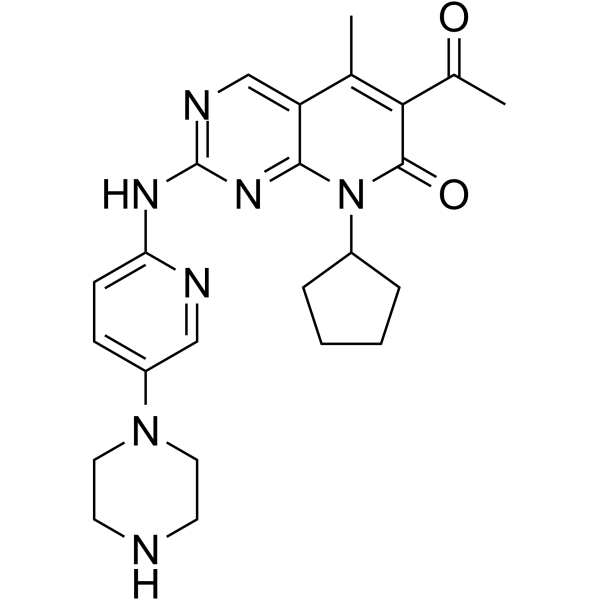
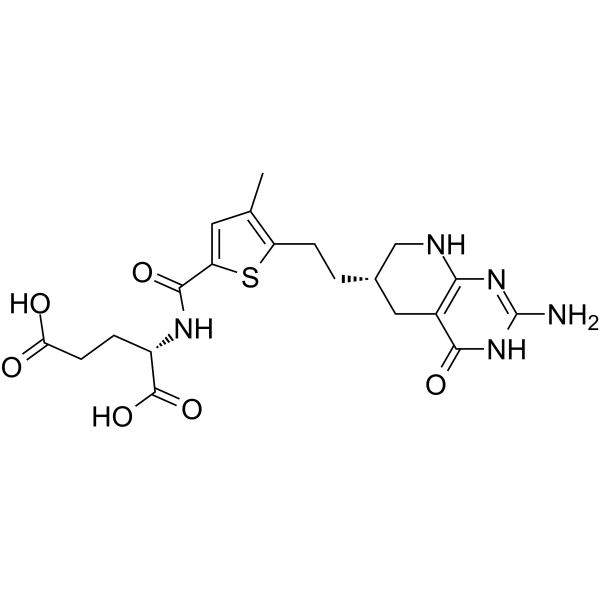
.gif)


